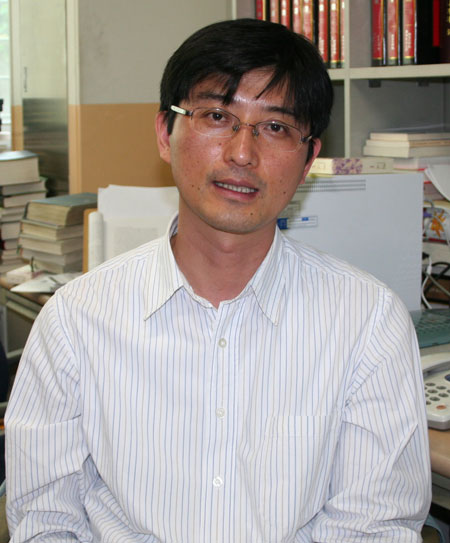발표자인터뷰 - 전자불전문화재콘텐츠연구소 이재수 연구원

이재수 연구원은 불교문화콘텐츠가 ‘우리나라 전통문화에서 큰 비중을 차지하는 불교문화를 더 쉽게 접근하고 이해할 수 있게 하도록 창의적으로 제작된 문화콘텐츠’라고 정의했다. 이 연구원이 불교문화콘텐츠를 연구하게 된 계기는 응용불교를 전공하면서부터다. 당시 불교문화콘텐츠는 불교철학ㆍ사상ㆍ문학의 내용을 제대로 표출하지 못했고, 이를 체계적으로 조직화하는데 취약했다. 이 연구원은 전공공부를 통해 불교문화콘텐츠의 중요성을 인식했고, 그것은 지금까지 이어졌다. 현재 그는 불교문화콘텐츠 개발 영역 중 전자불전분야에서 연구 중이다. 이는 불교텍스트, 즉 경전과 같은 불교관련 글을 전산화하거나 한글로 번역하는 것이다. 대표적으로 고려대장경 전산화ㆍ한글번역이 있다.
불교문화콘텐츠 개발을 위해서는 불교문화 중에서 콘텐츠로서 가치있는 것을 발견하는 데 많은 노력을 기울여야 한다. 뿐만 아니라, 이를 뒷받침할 기술도 중요하다. 이 연구원은 “우리나라는 IT강국이기 때문에 기술적인 어려움은 없다”며 “나날이 발전해가는 IT기술을 불교문화와 접목한다면 더욱 다양한 콘텐츠를 개발할 수 있을 것”이라고 말했다. 또, 불교문화콘텐츠는 포교활동에도 도움이 될 것으로 기대된다. 포교란 불교가 어떤 것인지 이해시키는 것이다. 따라서 다채로운 영상들과 체험이 가능한 콘텐츠 등으로 이루어진 종합선물세트와 같은 불교문화콘텐츠는 포교를 보다 용이하게 도울 것이라고.
그렇다면 현재 불교문화콘텐츠는 어느 정도 발전되었을까? 이 연구원은 “아직 시작의 단계”라고 말한다. 웹문서나 플래시, 애니메이션 등 여러 가지 콘텐츠가 개발되었지만 아직 꺼내야 할 이야기가 많다고. 불교문화콘텐츠를 발전시키기 위해선 스토리텔링을 중점적으로 연구해야 한다라고 강조한다.
불교문화콘텐츠의 진정한 가치는 첨단과학이 제공하는 세련된 표현기술로 불교문화를 표현하는 것이 아니라, 콘텐츠에 담겨진 인간 내면의 가치를 형상화하는 것이라고 한다. 불교문화콘텐츠가 불교와 인간을 보다 가깝게 해줄 가교가 되길 기대해본다.
정웅재 수습기자
wondergirls@dongguk.edu

